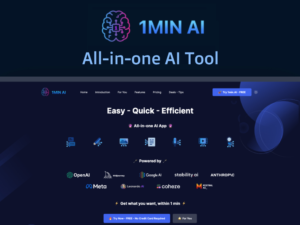Irish Privacy Regulator Raises Unresolved Questions Regarding Meta’s AI Tool

MetaAI’s Launch in Europe: Understanding the Developments
Introduction of MetaAI
Meta, the parent company of Facebook, Instagram, Messenger, and WhatsApp, has recently rolled out its AI tool, MetaAI, across Europe. This move comes after a prior halt last year due to uncertainties regarding regulations in the region. The introduction aims to enhance user interaction by enabling them to ask questions through a chat function on Meta’s platforms.
Regulatory Background
As the rollout unfolds, the Irish Data Protection Commission (DPC) has expressed ongoing concerns regarding Meta’s AI initiative. The DPC serves as the Lead Supervisory Authority for Meta in Europe and has been diligently reviewing the tool in collaboration with other supervisory bodies across the European Union (EU) and European Economic Area (EEA).
Ongoing Concerns
A spokesperson from the DPC conveyed that while they have been closely monitoring MetaAI, there are still unanswered questions regarding WhatsApp and its compliance with data protection regulations. They emphasized that continued engagement with WhatsApp is essential to address these inquiries.
Rollout Timeline
MetaAI was first introduced in the United States in September 2023, followed by a launch in India in June 2024 and the United Kingdom in October 2024. The tool allows users to engage in discussions and seek information via chat functions on various Meta platforms, promoting a more interactive experience.
Previous Delays
The plan to launch MetaAI in Europe faced significant delays due to concerns about regulatory unpredictability. The Irish privacy authority raised questions about how Meta intended to use the personal data of adult users on Facebook and Instagram, specifically relating to the training of large language models (LLMs).
Compliance and Transparency
In response to these regulatory challenges, Meta has asserted that it has been fully transparent with the DPC regarding the launch of MetaAI on its messaging services. The company expressed confidence in its compliance with all data protection regulations, particularly the General Data Protection Regulation (GDPR). Non-compliance with GDPR could lead to severe penalties, which Meta is keen to avoid.
Platform Regulations: The Digital Services Act (DSA)
In addition to GDPR compliance, aspects of MetaAI fall under the scope of the Digital Services Act (DSA), which establishes standards for user safety and transparency across digital platforms in Europe. The European Commission has stated that they are awaiting a thorough risk assessment from Meta to ascertain whether the AI tool adheres to DSA obligations.
Monitoring Compliance
A European Commission representative has indicated that initial components of MetaAI may not be applicable under the DSA regulations. However, they assured that the Commission would continue to monitor the tool’s deployment closely to ensure it aligns with regulatory standards as it integrates into the market.
Conclusion
As MetaAI makes its way into European markets, the ongoing dialogues with regulatory bodies signify the complex intersection of innovation and compliance. The ability to navigate these discussions effectively will play a crucial role in Meta’s future operations in Europe.






